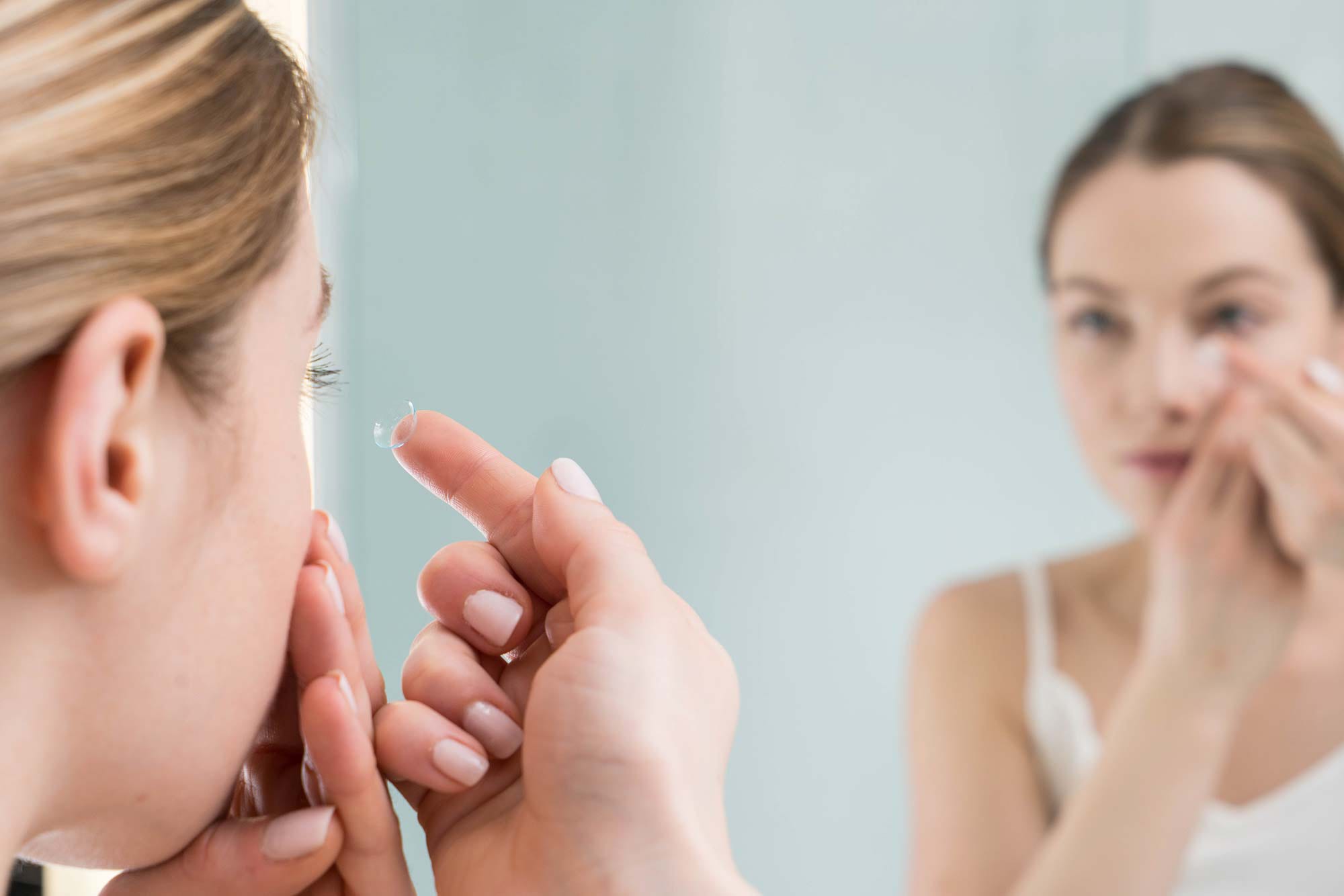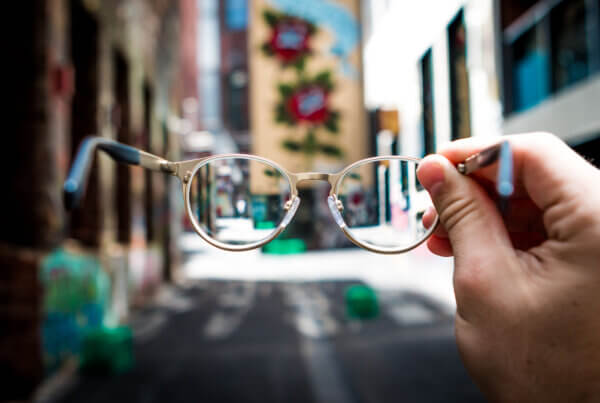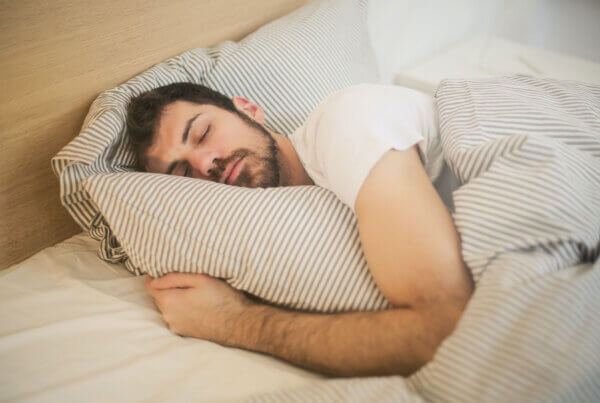Are You Suffering from Dry Eye Symptoms?
It’s easy to take your eyes for granted. From the moment you wake to the time you sleep, you depend on them for visual awareness of the world around you. So, when you begin to experience problems, such as dry eye symptoms, it’s important to find out what’s causing the issue. In many cases, you need only to make some small adjustments to your daily habits. In other cases, you may need to visit an optometrist to help you resolve your dry eyes. Here’s what you need to know:
What are the Symptoms?
If your eyes are feeling dry, it could be an imbalance in the ingredients of your tears. Dry eye symptoms are uncomfortable and may include:
- Scratchy or gritty sensation in your eyes
- Feeling like debris is stuck in your eyelid
- Sensitivity to wind, dry climates, or smoke
- Stringy discharge from the eyes
- Dry eye redness
- Dry eye blurred vision
Some people even experience dry eye headaches, or sensations of dry eye burning, eye fatigue, and heavy eyelids.
What Causes Dry Eye Symptoms?
Ideally, the surface of your eye–called the cornea–is bathed in soothing tears every time you blink. Dry eye symptoms are primarily driven by problems in tear film production. Tear film is a mixture of water, oil, and mucus. Other minor ingredients include protective antibodies, and special proteins. These various ingredients are secreted from special glands located around your eye. They mix together in the perfect solution, providing a film layer of moisture and lubrication for your cornea. When dry eye symptoms happen, it is primarily caused by one of two ways:
- Aqueous tear-deficient dry eye occurs when the eye glands do not secrete enough water into the tear film mixture. Without water for moisture, eyes will become dry.
- Evaporative dry eye happens when the eye glands do not secrete enough oil as part of the protective tear film. When oil is insufficiently present in tears, water will evaporate too quickly.
In both of these instances, the cornea suffers and can become affected by poor quality tear film.
There are many reasons why these two types of dry eye can occur. For some people, taking anti-inflammatory medication will cause excessive eye moisture loss. For others, a hormone imbalance can also cause dry eyes. The hormone estrogen in particular is known to cause dry eye symptoms. Other reasons include illness and diseases such as lupus, rheumatoid arthritis, diabetes, and thyroid issues. Any condition, injury, or trauma leading to swollen eyelids may also cause eyes to become dry.
In some cases, dry eyes cause reflex tearing to happen. Reflex tearing is a condition that occurs when low moisture in the eye causes irritation. The nervous system senses the problem and calls for more lubrication. In response, the body tries to make up for the dryness by flooding the eye with tears. If you have ever had a fleck of debris in your eye, you may have experienced a similar response. The body tries to flush the eye with water in an attempt to wash away the irritant. The difference is that flushing tears are mostly water, and do not lubricate the eye as normal tears do.
Who Can Develop Dry Eye Symptoms?
Temporary dry eye symptoms are quite common. Individuals can get dry eye from being in a windy location. Dry eye contacts can also happen if contacts do not fit properly or are worn too long. Other causes include dry eyes from computer use for long periods of time. Intense focus on a computer or mobile screen causes a person to blink less often, leading to dryness and discomfort. Intrusive eye care, such as LASIK corrective surgery can result in temporary dryness for several months. Dry eyes after cataract surgery is also common for a period of time.
Chronic dry eye symptoms are more difficult to resolve. They can happen to anyone, but some people are more likely to experience it than others. Adults over age 50 experience dry eye symptoms more often than younger adults. Women who are experiencing estrogen hormone changes may also have dry eyes. This fluctuation is why menopause, birth control, and pregnancy can cause dry eye symptoms to occur. Others who may develop chronic symptoms may include people with:
- Thyroid disorders
- Autoimmune conditions
- Eye nerve conditions
- Medications that cause mucous membranes to dry up
Sometimes people experience dry eye symptoms in one eye only. While this is unusual, treatment may still be possible. The important thing is to speak with an eye doctor right away.
What Are the Treatment Options for Dry Eyes?
Depending on your symptoms and whether your situation is temporary or chronic in nature, will determine what treatment your doctor will recommend. They may include:
- Artificial tears and ointments are very common and can be purchased over the counter. Every product option works a little differently for every person. You may need to try a few different products to find the one that works best for you.
- Lipiflow is a medical device designed to help unclog any blocked eyelid glands. The device uses heat and pressure to accomplish this objective.
- Cyclosporine is a prescription eye drop. It helps to increase the production of tears.
- Testosterone cream may be recommended for those situations where dry eye is determined to be caused by a lack of testosterone in the eyelid oil glands.
- A temporary punctal occlusion can be done to temporarily close the punctum. The punctum is a duct that allows tears to drain out of the eye. The temporary plug will dissolve over time. If the plug works well, this will inform you and your doctor about the utility of permanent plugs.
- A permanent punctal occlusion can be performed using long-lasting plugs or cautery to seal the punctum shut.
Contact Us for Professional Support
If you’re suffering from dry eye symptoms, call our team of eye professionals for a friendly conversation about your situation. We’re here to support your eye health. Call today to get started.
Call today (773-360-8900) to schedule an exam and learn more.






